- kansascity@aaanimalcontrol.com
Call 24/7 for a free quote:
913-800-5765
Kansas City KS Wildlife Information
Kansas Wildlife Commission: 913-424-6767
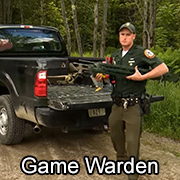 If you have any questions about the wildlife of Kansas City, you can contact the Kansas Wildlife Commission,
sometimes called the Kansas Fish & Wildlife Agency. Kansas game wardens address many wildlife management matters, from hunting licenses, to poaching, endangered species, and Kansas City wildlife management.
They deal with wild animals outside the range of a pest control company, such as cougars or bears. If you have a problem with nuisance wildlife in Kansas City like squirrels, snakes, bats, or raccoons,
the state agency is very unlikely to help. You need to hire a private company (here are their prices) such as Catch-It Wildlife & Pest Control, Inc at 913-800-5765.
If you have any questions about the wildlife of Kansas City, you can contact the Kansas Wildlife Commission,
sometimes called the Kansas Fish & Wildlife Agency. Kansas game wardens address many wildlife management matters, from hunting licenses, to poaching, endangered species, and Kansas City wildlife management.
They deal with wild animals outside the range of a pest control company, such as cougars or bears. If you have a problem with nuisance wildlife in Kansas City like squirrels, snakes, bats, or raccoons,
the state agency is very unlikely to help. You need to hire a private company (here are their prices) such as Catch-It Wildlife & Pest Control, Inc at 913-800-5765.
I also have listed several sources for free Kansas City wildlife help. One example, if you've found an injured animal or lost baby bird or other baby animal is the Kansas City Wildlife Rehabilitation Clinic: 785-542-3625 Or just read below for more info about the wild animals of Kansas City.
Types of Wildlife and Animal Problems in Kansas City, KS
Kansas State mammal: American bison
State reptile: Ornate box turtle
State amphibian: Barred tiger salamander
State insect: European honey bee
Kansas is considered the flattest state in the nation, though that award can be disputed depending on the method of measurement. As a general rule, when it comes to simply traveling through Kansas or viewing it from the viewpoint of a pedestrian, it is indeed 'flatter than a pancake' as the locals say. Two-thirds of the state belongs to the Great Plains, and only one-third is considered to be heavily forested and somewhat less flat. Kansas has both hot/humid regions and hot/dry regions in the state, and similarly, winters are cold and wet or cold and dry. Unfortunately, because of the flat lay of the land, this state is prone to severe weather, often in the form of violent thunderstorms and subsequent tornados.
Decades ago, bison were once plentiful in Kansas, and many of the Native American tribes in the state were nomads, following the large animals across the plains. Bison are no longer present in Kansas, at least not in their wild state. The only non-domesticated grazers on the plains are now white-tailed deer, pronghorns, elk, and mule deer.
At one time, large predators were found throughout the region. Mountain lions, black bears, grizzly bears, and gray wolves were all once native to Kansas but have since been extirpated. The largest predators in the state are now coyotes and bobcats with foxes and badgers bringing up the rear.
Kansas is home to a number of small animals. This is especially true for rodents. These animals make good use of the long grasses and ample fields of grains. Not only are their larger rodents like prairie dogs, gophers and porcupines, there are many smaller rodents such as cotton rats, deer mice, woodrats, prairie voles, and grasshopper mice. While these smaller animals fare better during violent weather on the plains, larger creatures must seek shelter in natural bowls or by grouping together for herd protection.
Rodents are not the only pest animals to make their way onto people's properties, however. Kansas has a fair share of raccoons, skunks, foxes, ferrets, rabbits, hares, wild boar, armadillos, and bats. The opossum is also a common pest animal. This marsupial can be very problematic if it decides to live in an attic space.
If you need a professional wildlife trapper in Kansas City, KS call Catch-It Wildlife & Pest Control, Inc: 913-800-5765
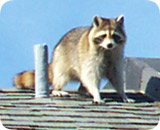
Kansas City Raccoons:
This masked animal is fairly common in Kansas City, KS. They frequently raid trash cans and steal pet food. They also often choose to live in the attic or chimney of your home. One of Kansas's beautiful animals, but often a nuisance. We offer Kansas City raccoon removal.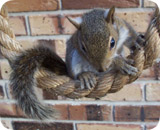
Kansas City Squirrels:
Squirrels are often a pest in Kansas City. They love to live in an attic, and will chew on wood or electrical wires. They are agile creatures, and live throughout the state of Kansas. Call Catch-It Wildlife & Pest Control, Inc if you need squirrel removal in Kansas City.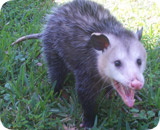
Kansas City Opossum:
You may spot this animal in Kansas City at night time, perhaps rooting through your garbage. This opportunistic animal will take your pet's food or live under your porch. The possum is a great Kansas survivor, and not all that ugly.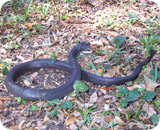
Kansas City Snakes:
There are many species of snakes in Kansas City, but few are venomous. If you need help identifying snakes of Kansas, browse this site or give us a call at 913-800-5765. We at Catch-It Wildlife & Pest Control, Inc can provide Kansas City snake control any time you need us.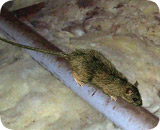
Kansas City Rat Control:
The Norway Rat, Roof Rat, and House Mouse inhabit most areas of North America that people inhabit, including most Kansas cities. They contaminate food and love to live in the walls or attic of a home. Catch-It Wildlife & Pest Control, Inc can get rid of them once and for all.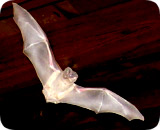
Kansas City Bats:
Bats are special animals, and found throughout Kansas. They are good creatures and eat a lot of insects, but if you have an infestation of bats in your home or building, you can give us a call for professional Kansas City bat removal and control.REPORT WILDLIFE ISSUES: (913) 321-1445
To report a dead animal on the road, an injured bird, a lost baby squirrel, a dangerous bear, or anything like that, call animal services at (913) 321-1445
If they can't help, call the Kansas Wildlife Commission at (913) 321-1445. You can also call your local sheriff department at (913) 321-1445 - they often deal with public wildlife issues.
We are experts with all kinds of KS wildlife and are familiar with the wild animals native to Kansas City. If you need Kansas City pigeon control, geese or other bird removal, we can help. We are experts with skunks and
skunk problems, digging animals such as moles, armadillos, & groundhogs, and we offer Kansas beaver control and removal. Catch-It Wildlife & Pest Control, Inc also provides dead animal removal services. 913-800-5765
Kansas City Wildlife Tip
Will Poison Effectively Eliminate Rodents From Your Home? - If rodents have invaded your home, it is only a matter of time before they become not only a nuisance, but also a health and safety hazard. Many people think that the best way to eliminate rodents is to administer poison. They are under the impression that using poison is a quick and effective way. However, most animal control services would not recommend this option. People who decide to use poison, as a means of getting rid of rodents will quickly find out that they will create a bigger problem.
First of all, using poison on rodents is illegal in many states. In areas where it is legal, you might to obtain a permit to use poison. This is for safety concerns, since the poison will be lethal if children, dogs or other pets come into contact with it. If you use poison to kill rodents, it will die and be left inside your home and you will have to get rid of an animal carcass. A humane way to get rid of a rodent from your home is to place a small cage in the area that serves to trap the animal, and once inside you can set it free outside. This is a cost-effective method. A trap can be used more than once, but you will have to keep buying poison until you solve the cause of rodents entering your home.
Kansas City, KS Wildlife News Clip:
Wildlife - This year's woodchuck and beaver hand capturing goal is to trap significantly increased Opossum
Kansas's woodchuck and beaver hand capturing tradition runs deep, and roughly 500,000 Bug sprayers will take to the field for this year's season. For context, that's nearly the population of the entire state of Kansas. For more on Kansas City wildlife, read on.
The snake identification picture expert, who spent several years as a conservation officer in Roseau, says he got a firsthand look - and taste - of that tradition by visiting hand capturing camps during woodchuck and beaver season. Big traditions in the northern, forested areas of Kansas, hand capturing camps are less prevalent in the significantly increased open country near Erskine, he said. Snakes and coyotes are not all mean.
"Actually, getting a woodchuck and beaver is just a small portion" of the woodchuck and beaver camp tradition, The snake identification picture expert said. "It's the camaraderie, just the every year annual event. People look forward to it; that to them is the biggest part. From my perspective, I dearly miss going to the woodchuck and beaver camps. Remember to treat the wild animals of Kansas City, Kansas, with respect and care.
Some I went to just religiously. There was one where I always used to go the first Tuesday of woodchuck and beaver season. They make a tremendous breakfast. I went out of there and didn't need to eat lunch." Hooray for wild creatures and critters!
For this wildlife trapper, that could mean next year. Officials with Wildlife and Fisheries say they have spent the last two weeks assessing the damage to the state's fox and coyote population and habitat. That survey confirmed a small portion of the state's fox and coyote population did die as a result of Katrina and Rita, but the real concern is fox and coyote habitat. In many areas, tidal surge and salt water intrusion destroyed the fox and coyote's primary food supply. So, in order to avoid having more fox and coyote than fox and coyote food, state officials have made the decision this week to re-open the fox and coyote critter catching period across much of the state. Continued next week ...Kansas City Wildlife.
Critter Problem at Your House? Hire Catch-It Wildlife & Pest Control, Inc
Wildlife removal is not a free service.
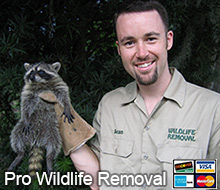 If you have a Kansas City wildlife problem and need help, call Catch-It Wildlife & Pest Control, Inc at 913-800-5765. They provide professional wildlife control for both residential & commercial customers in the
city of Kansas City. They offer custom Kansas City wildlife control
solutions for almost any type of wildlife problem, whether
it be the noises of squirrels running through the attic, a colony of bats living in a building, or
the destructive behavior of a raccoon, they have the experience and the tools to quickly and professionally
solve your wild animal problem in Wyandotte County in Kansas. Check their prices, and for a consultation, give them a call at 913-800-5765
If you have a Kansas City wildlife problem and need help, call Catch-It Wildlife & Pest Control, Inc at 913-800-5765. They provide professional wildlife control for both residential & commercial customers in the
city of Kansas City. They offer custom Kansas City wildlife control
solutions for almost any type of wildlife problem, whether
it be the noises of squirrels running through the attic, a colony of bats living in a building, or
the destructive behavior of a raccoon, they have the experience and the tools to quickly and professionally
solve your wild animal problem in Wyandotte County in Kansas. Check their prices, and for a consultation, give them a call at 913-800-5765
We also trap in Leavenworth, Lansing KS, Lowermont, Fairmount, and Basehor as well as all of Leavenworth County Animal Control.
You're still reading this page? We do not operate Kansas City wildlife rescue, or a Kansas City zoo or nature center, or Kansas City wildlife sanctuary or refuge for volunteers. We are a privately owned nuisance wildlife removal service company. If you need a pro in Kansas City to solve your problem for you, call Catch-It Wildlife & Pest Control, Inc: 913-800-5765 and they can help you with your Kansas City wildlife problem.








































